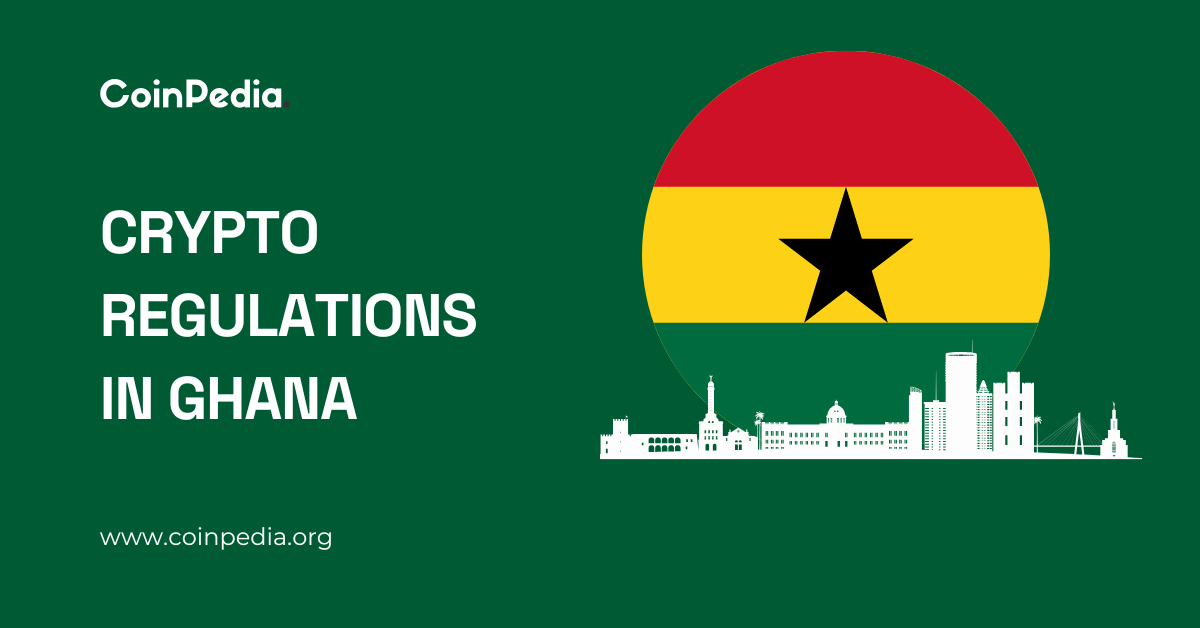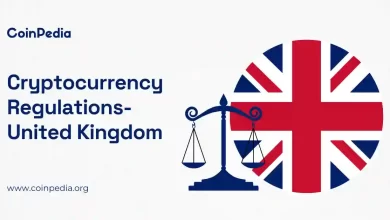
As of 2025, Ghana is actively developing its cryptocurrency landscape. It is drafting roadmaps for creating licenses for crypto exchanges and platforms. The Bank of Ghana is establishing a dedicated unit focused on digital assets to manage the regulatory process.
Before 2025, cryptocurrency was effectively illegal or unregulated in Ghana. The Bank of Ghana issued multiple notices clarifying that crypto is not a legal tender and is not regulated by any domestic law. It explicitly stated that cryptocurrency is not backed or guaranteed by the government. But that sentiment is changing in 2025.
Table of contents
Crypto VASP Licensing
July 2025- VASP Licensing
- Bank of Ghana (BOG) asked all VASPs operating in Ghana to register by August 15, 2025, as part of the preparation for official licensing and regulation.
- This initiative aims to ensure the country generates revenue from the digital assets sector while helping to stabilise its national currency.
April 2025 – The Virtual Asset Providers Act
- The Bank of Ghana’s governor, Johnson Asiama, announced during a recent visit to Washington, D.C., that the central bank plans to begin regulating Virtual Asset Service Providers (VASPs).
The Bank of Ghana is currently developing a regulatory framework aimed at governing the digital asset space, which it intends to present to Parliament by the end of September 2025.
Timeline of Major Cryptocurrency Regulations in Ghana
| Date | Law and Announcement | Details |
| August 31, 2024 | This included mandatory VASP registration and anti-money laundering (AML) compliance. | This included mandatory VASP registration, anti-money laundering (AML) compliance. |
| March 9, 2022 | Officially declared crypto illegal | The central bank reiterated that crypto is not legal |
| January 22, 2018 | Ban on crypto | Not regulated under federal law |
Government of Ghana’s Official Stance on Cryptocurrency in 2025
Changing their cautious sentiments, Ghana is finally moving towards modernization in the technological landscape with digital assets. The government is focusing on transparency and accountability in the emerging digital asset market.
The Virtual Asset Providers Act will be presented in the parliament, which strives to cover all important aspects of crypto. It includes licensed crypto platforms, enforces consumer protections, anti-money laundering rules, and tax obligations for digital asset providers.
Governor Johnson Asiama stated, “Licensing will enable us to monitor payments more effectively and support inflation targeting and exchange rate management.”
Crypto License in Ghana 2025
In September 2025, Ghana will release crypto licensing for virtual asset service providers (VASPs). This will allow businesses to legally operate cryptocurrency trading platforms.
The licenses aim to confirm that exchanges meet compliance standards, protect users, and prevent illegal activities like money laundering and fraud.
Key Features of Ghana’s Crypto Licensing Framework
- Licensing and Registration: Crypto exchanges and wallet providers are required to register with the Bank of Ghana to obtain a VASP license.
- AML/KYC Compliance: Strict regulation of anti-money laundering (AML) and know your customer (KYC) must be complied with.
- Cybersecurity and Audits: Businesses will be required to undergo regular audits and maintain required reports to ensure cybersecurity and data privacy.
- Minimum Capital Thresholds: Licensed platforms will likely be required to maintain minimum capital thresholds of 5 million Ghanaian cedis.
Crypto Tax in Ghana 2025
Is crypto taxed in Ghana? Yes, with recent regulatory development, the government has established a tax regime for crypto.
- According to a 2025 report by the Ghana Blockchain Institute, the introduction of crypto taxes has led to a 20% increase in revenue collection from digital asset activities.
- Penalty: Failure to properly report crypto gains or income on tax returns can lead to fines imposed once the non-compliance is discovered.
| Tax type | Tax rate | details |
| Capital Gains Tax | 15% for individuals | Tax on profits from sale, exchange, or transfer of cryptocurrencies |
| Corporate/Business Tax | 25% | Tax on crypto transactions as part of business operations |
| Income Tax (general) | 0-35% for individuals (for others, it varies) | Ordinary income tax on crypto earnings (min. wage exempt) |
Crypto Mining in Ghana 2025
According to MEXC, crypto mining is legal in Ghana in 2025 since the business and individuals’ earnings involved with mining are subject to taxation. The Ghana Securities and Exchange Commission (SEC) oversees this. Approximately 10% of Ghana’s renewable energy output is utilized by mining, and as of 2025, the country has over 50 registered crypto mining companies.
Crypto Adoption Rate in Ghana
- Adoption rate: As of July 2025, roughly 3 million Ghanaians, or 17% of the adult population, use bitcoin and other cryptocurrencies, according Bloomberg report. Ghana grew crypto users by 38.2% in 2025, with education efforts targeting students and young professionals.
- Government’s Crypto Holdings: The government has not publicly disclosed its crypto holdings, if it has any. Policies rather focus on implementing crypto regulations.
Conclusion
According to the governor of Ghana, the proposed law will allow the nation to leverage cryptocurrencies, boost cross-border trade, attract strategic investment, and collect financial data. Johnson Asiama said, “We are actually late in the game,” indicating the global surge in crypto adoption.
Never Miss a Beat in the Crypto World!
Stay ahead with breaking news, expert analysis, and real-time updates on the latest trends in Bitcoin, altcoins, DeFi, NFTs, and more.
FAQs
Yes, Ghana is legalizing crypto with new VASP licensing (effective Sept 2025). Exchanges must register with the Bank of Ghana under AML/KYC rules.
Ghana taxes crypto at 15% capital gains, 25% corporate tax, and 0-35% income tax. Non-compliance triggers fines per new 2025 regulations.
Yes. The BoG is finalizing regulations for parliamentary approval by September 2025, including licensing for crypto platforms and AML oversight.
To boost revenue, attract investment, and stabilize the cedi. The BoG admits being “late in the game” but aims to modernize financial oversight.
Trust with CoinPedia:
CoinPedia has been delivering accurate and timely cryptocurrency and blockchain updates since 2017. All content is created by our expert panel of analysts and journalists, following strict Editorial Guidelines based on E-E-A-T (Experience, Expertise, Authoritativeness, Trustworthiness). Every article is fact-checked against reputable sources to ensure accuracy, transparency, and reliability. Our review policy guarantees unbiased evaluations when recommending exchanges, platforms, or tools. We strive to provide timely updates about everything crypto & blockchain, right from startups to industry majors.
Investment Disclaimer:
All opinions and insights shared represent the author's own views on current market conditions. Please do your own research before making investment decisions. Neither the writer nor the publication assumes responsibility for your financial choices.
Sponsored and Advertisements:
Sponsored content and affiliate links may appear on our site. Advertisements are marked clearly, and our editorial content remains entirely independent from our ad partners.








